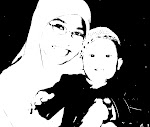
This morning i read a book.
Ahmad dan Daud meriwayatkan dari Buraidah, bahawa Rasulullah s.a.w bersabda, yang bermaksud:
"Dalam tubuh manusia itu terdapat 360 ruas tulang. Hendaklah dia bersedeqah untuk setiap ruas itu."
Para sahabat bertanya; "Siapakah yang mampu melaksanakan itu ya Rasulullah?"
Rasulullah s.a.w menjawab: "Kotoran yang ada di masjid, lantas ditutupnya (dibersihkan) dengan tanah, atau menyingkirkan sesuatu gangguan dari tengah jalan itu bererti sedeqah. Atau sekiranya sanggup, cukuplah diganti dengan mengerjakan SOLAT DHUHA sebanyak 2 rakaat".
How many bones are there in our body?
At birth the human body has about 350 bones, but by the time adulthood rolls around, some of our bones have fused together to give us a total of 206 bones in our body!
Here is the breakdown:
The adult skeleton consists of 206 bones . . .
- 28 skull bones (8 cranial, 14 facial, and 6 ear bones);
- the horseshoe-shaped hyoid bone of the neck;
- 26 vertebrae (7 cervical or neck, 12 thorax, 5 lumbar or loins, the sacrum which is five fused vertebrae, and the coccyx, our vestigial tail, which is four fused vertebrae);
- 24 ribs plus the sternum or breastbone; the shoulder girdle (2 clavicles, the most frequently fractured bone in the body, and 2 scapulae);
- the pelvic girdle (2 fused bones);
- 30 bones in our arms and legs (a total of 120);
- There are also a few partial bones, ranging from 8-18 in number, which are related to joints.
Basically, there are 7 vertebrae and the hyoid bone in the neck. Some of the above information was taken from this site, which has an extremely detailed breakdown of the skeletal system and its capabilities . . .
http://www.classbrain.com/artaskcb/publish/article_145.shtml
There must be 360 bones. If we have 350 bones at birth, where are the other 10 bones? hmmmm..... let's find out!(What about other opinions or hadiths? Please share them with me..)
JUSTFIKIR




No comments:
Post a Comment